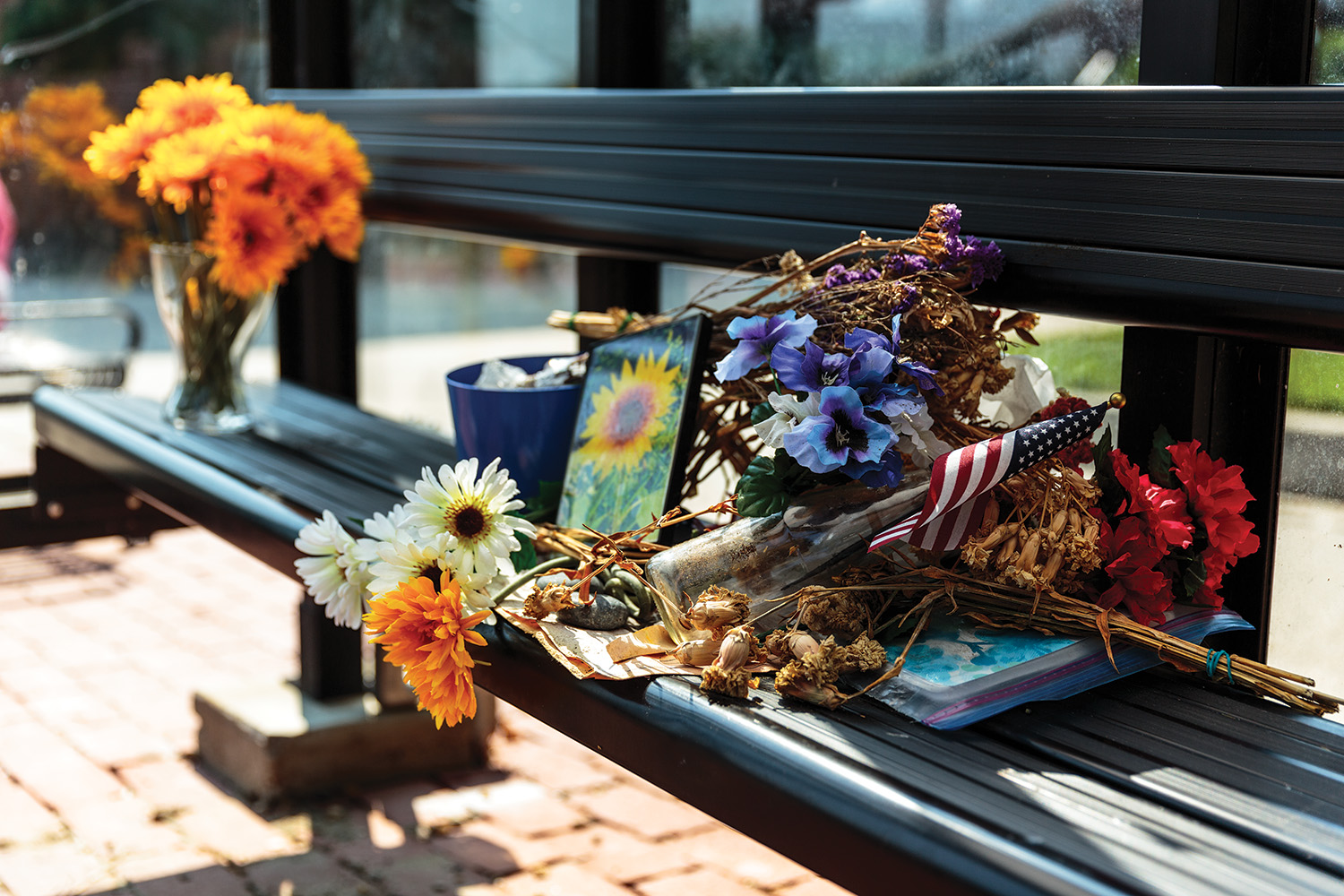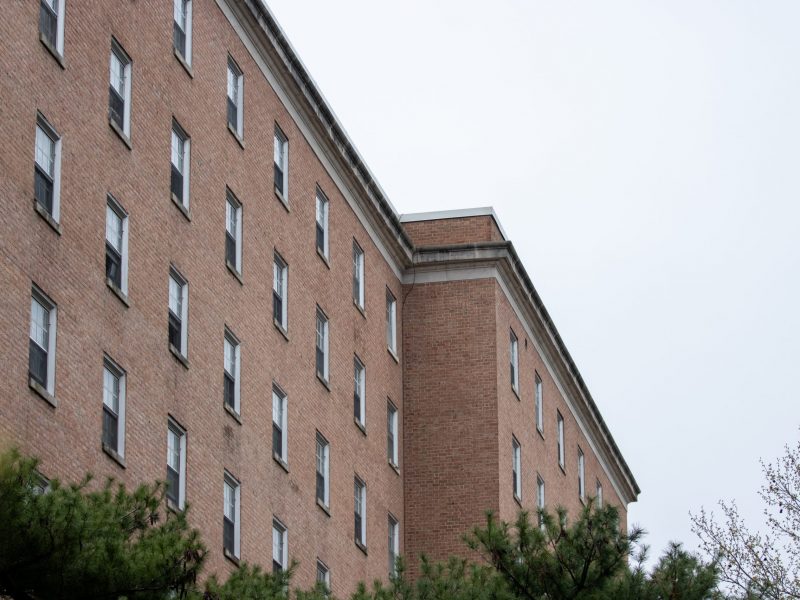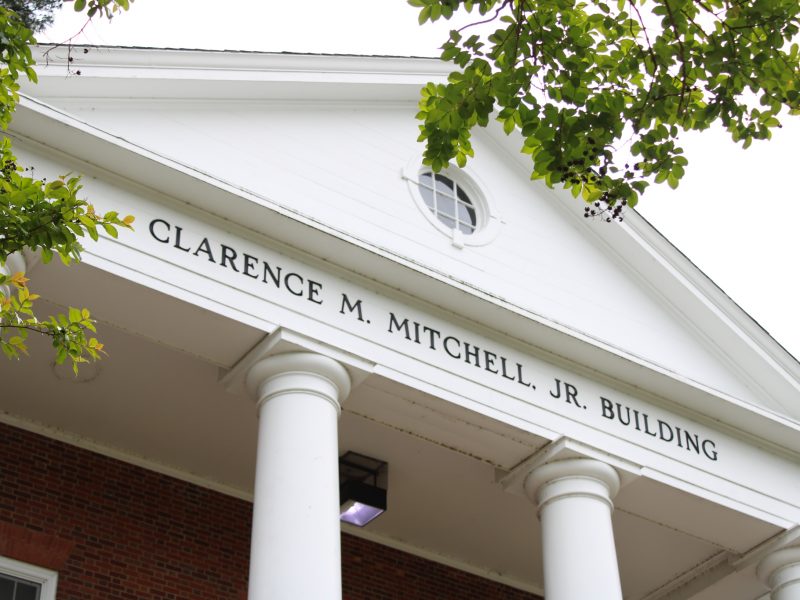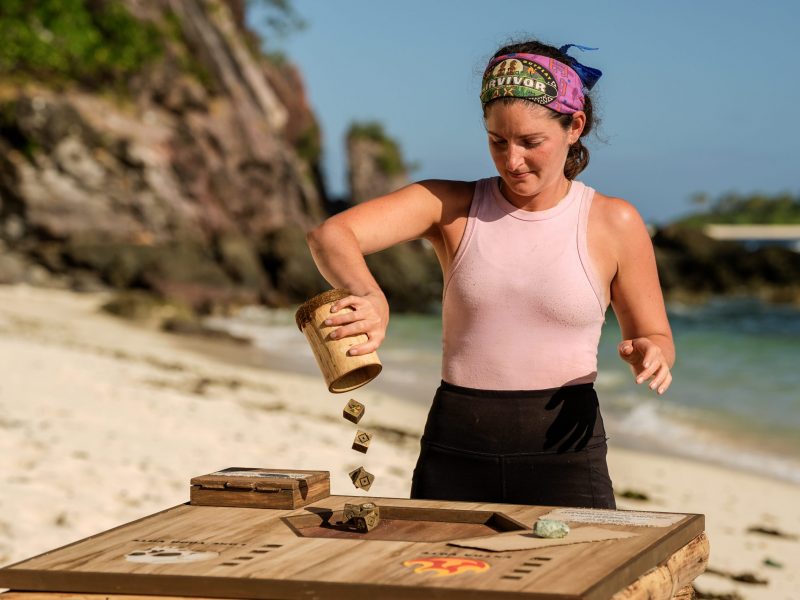As University of Maryland sophomore Senam Okpattah walks past the Montgomery Hall bus stop, she said she feels “discomfort and frustration.”
Black Bowie State University student Richard Collins was fatally stabbed near the bus stop in May. Four months later, this university relocated it to near Annapolis Hall and erected a temporary protective barrier around it.
But for Okpattah — who said she regularly sees students leaning on the structure or making casual comments about “that guy [who] died” — that isn’t enough.
“There have been times when I’ve seen people … just completely disregarding the fact that someone died there,” the African-American studies and public policy major said. “I find that very problematic because not only does it minimize what happened to him and the severity of the incident, but I also think that it desensitizes people from instances of racism [and] racial oppression.”
[Read more: UMD will have a memorial to Richard Collins on campus]
So when she was assigned to write a petition in her women’s studies class, Okpattah didn’t think twice about her topic: urging the university to establish an official memorial for Collins.
Each student’s goal was to receive 100 signatures on their petition, but Okpattah’s online Change.org petition now has more than 1,200 signatures, as of Tuesday.
“Inadequate means of commemorating a black man’s legacy masked under a facade of concern and social awareness are no longer acceptable,” the petition reads. “UMD has had to blockade the bus stop where Lieutenant Collins took his dying breaths.”
The petition, addressed to university President Wallace Loh, requests that the school place a plaque with Collins’ name on it at the stop and install a “cement-grounded barrier made up of blockade poles” to prevent people from sitting or leaning on the structure.
On Tuesday morning, Loh announced in a campuswide email that “the University of Maryland will remember and honor, in perpetuity, the life of Lt. Collins, including with a physical memorial,” though officials aren’t moving forward with anything yet.
[Read more: UMD announces its new hate bias response coordinator]
“I am in contact with the Collins family and their representatives. We are not proceeding with any planned actions at this time out of respect — and at the family’s request – for privacy,” the email read.
Okpattah said she was “not satisfied” with Loh’s email, adding that it “fails to address” that Collins’ killing was “rooted” in racism and hate. Sean Urbanski, a white former student at this university who police said was a member of a racist Facebook group, is awaiting trial on murder and hate crime charges in the killing.
“There are a lot of students of color who are very uncomfortable and who don’t feel safe here, which is absurd and should never be the case,” she said. “[The email] seemed like a very calculated PR tactic.”
Okpattah added that other racist incidents on this campus — such as a noose found hanging in a fraternity house last spring and several reports of white nationalist posters across the campus — demonstrate a need for actions stronger than sending emails and sharing “blanket notions” of respect and tolerance.
Kimberly Rodriguez, a sophomore communication major, said she’s seen students leaning on the bus stop or huddling under it on windy days, which she described as a “huge sign of disrespect.” She said this university should establish a more formal memorial at the site to honor Collins and his family.
“It’s really easy to forget what happened there if we don’t really acknowledge it or put a plaque up or something,” she said.
Apryl Ogallo, a sophomore community health major, said she signed the petition because she doesn’t want Collins’ memory to fade as time passes.
At this university’s spring 2017 commencement ceremony, which took place the day after Collins’ death, Loh observed a moment of silence to honor Collins’ life. During the first week of the fall 2017 semester, this university held a campuswide moment of silence for one minute to honor him.
“It was spoken about for a little bit after it happened — but with it being such a big issue that happened on our campus, it’s not something that should be taken lightly,” Ogallo said. “It’s not something that should just be brushed over.”
Ogallo added that while she appreciates this university’s efforts to make the stop “sacred” by relocating it and erecting temporary barriers, more needs to be done in the future.
“I’m excited,” she said. “I hope it does start something that could potentially be something that could happen on this campus.”



